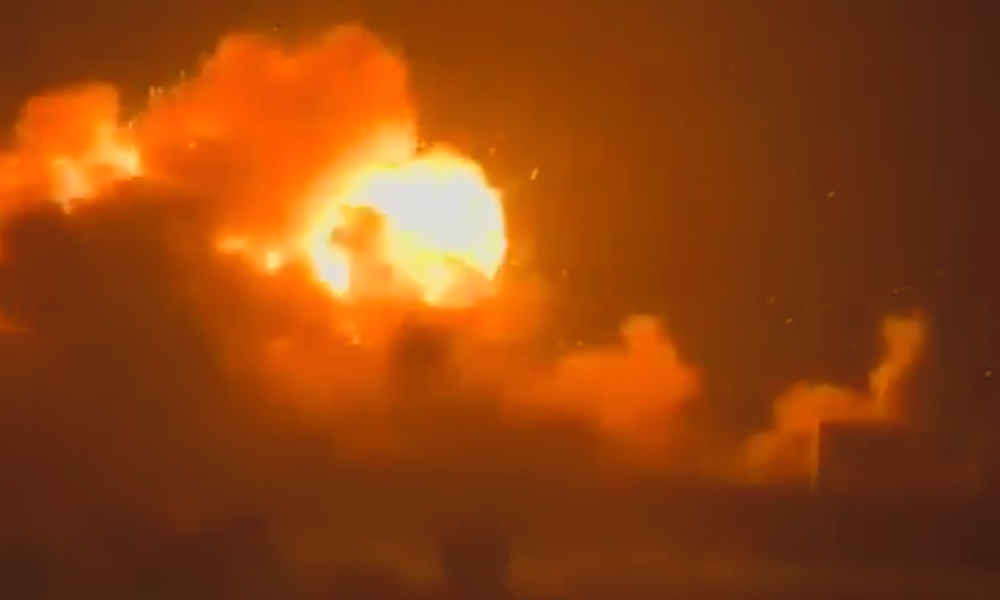World
India and Pakistan agree to immediate ceasefire

India and Pakistan have agreed to an immediate and full ceasefire, following several days of escalating cross-border strikes, according to leaders and officials from both countries.
President Donald Trump announced the ceasefire on a social media post on Saturday morning, calling it the result of a “long night of talks” and congratulating both countries for demonstrating “common sense and great intelligence.”
U.S. Secretary of State Marco Rubio stated that he and Vice President JD Vance had engaged directly with senior Indian and Pakistani officials over the past 48 hours, including Prime Ministers Narendra Modi and Shehbaz Sharif, their foreign ministers, national security advisors, and Pakistan’s military leadership.
“The Governments of India and Pakistan have agreed to an immediate ceasefire and to start talks on a broad set of issues at a neutral site,” Rubio said.
However, in a post from the Ministry of External Affairs, the Indian government stated that the agreement to halt military action was worked out directly between India and Pakistan, following a call initiated by Pakistan’s Director General of Military Operations (DGMO).
“The stoppage of firing and military action between India and Pakistan was worked out directly between the two countries,” the statement read. “The Pak DGMO initiated the call this afternoon after which discussions took place and understanding reached.”
The ministry also clarified that no agreement has been made to hold broader talks on other issues, contradicting Rubio’s remarks that suggested negotiations would begin at a neutral site.
The ceasefire follows India’s military operation earlier this week, Operation Sindoor, which targeted what Indian officials described as terrorist camps in Pakistan and Pakistan-administered Kashmir in response to a terrorist attack on April 17 in Pahalgam, which killed 26 people, including 25 Indian nationals and one Nepali citizen. The group claiming responsibility, The Resistance Front (TRF), is believed by Indian authorities to be linked to the Pakistan-based Lashkar-e-Taiba.
In the days following those strikes, Pakistan accused India of targeting civilian areas, including mosques, and said 31 civilians were killed.
Pakistan responded with retaliatory strikes under Operation Bunyan al-Marsus, hitting cities across India on Friday. Both sides also reported border skirmishes, drone strikes, and explosions in the contested region of Jammu and Kashmir.
Announcing the ceasefire, Pakistani Foreign Minister Ishaq Dar said, “Pakistan and India have agreed to a ceasefire with immediate effect. Pakistan has always strived for peace and security in the region, without compromising on its sovereignty and territorial integrity.”
In a separate post, Prime Minister Shehbaz Sharif thanked President Trump for his leadership, and praised the roles of Vice President Vance and Secretary Rubio. “Pakistan believes this marks a new beginning in the resolution of issues that have plagued the region and prevented its journey toward peace, prosperity and stability,” he said.
On the Indian side, External Affairs Minister Dr. S. Jaishankar confirmed the ceasefire, adding that “India has consistently maintained a firm and uncompromising stance against terrorism in all its forms and manifestations. It will continue to do so.”
While both sides have signaled willingness to begin dialogue, reports of explosions in Srinagar and Jammu surfaced after the ceasefire was announced, according to Reuters.

-

 World2 days ago
World2 days agoEthiopian volcano erupts for first time in thousands of years
-

 Legal1 week ago
Legal1 week agoMichigan man JD Vance sentenced to 2 years for threatening Trump and JD Vance
-

 Politics1 week ago
Politics1 week agoU.S. to designate Maduro-linked Cartel de los Soles as terrorist organization
-

 Health1 week ago
Health1 week agoCambodia reports fatal H5N1 bird flu case in 22-year-old man
-

 Legal6 days ago
Legal6 days agoWoman in critical condition after being set on fire on Chicago train
-

 World6 days ago
World6 days agoHurricane Melissa registered 252 mph wind gust, breaking global record
-

 Politics1 week ago
Politics1 week agoEpstein survivors release PSA calling on Congress to release all files
-

 Legal5 days ago
Legal5 days agoSuspect in San Diego stabbing shot by authorities after fleeing into Mexico




